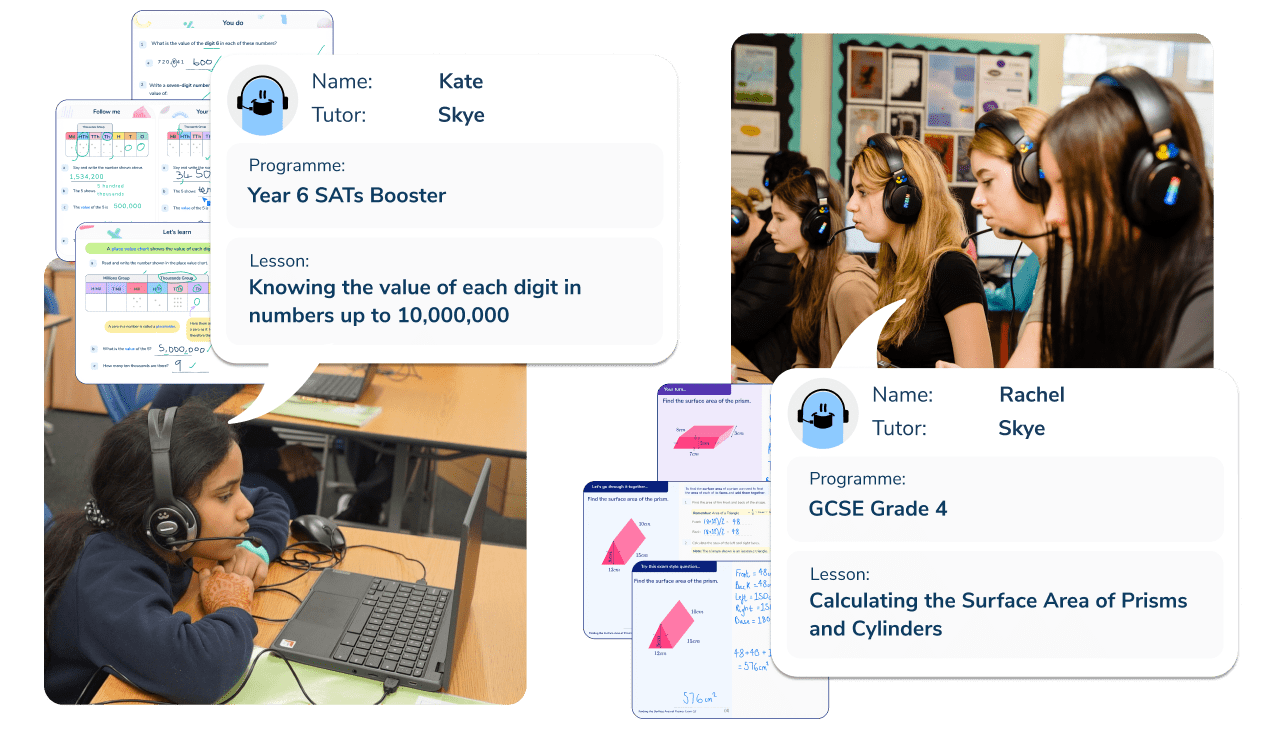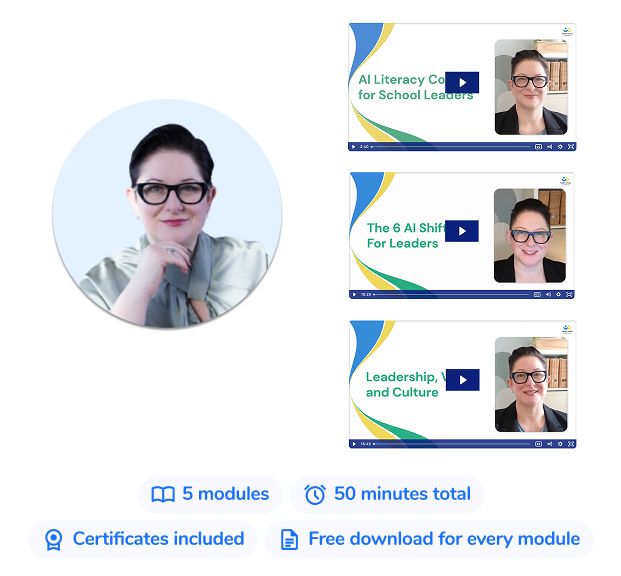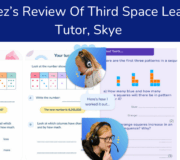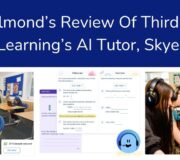What You Need To Know About The EEF Tutoring Report
In this article, we provide a summary of the recommendations made in the EEF tutoring report, ‘Making a difference with effective tutoring’. This article is designed to provide school leaders with practical advice to help ensure their approach to the tuition process is a success.
Research clearly shows the positive impact high quality tutoring has on accelerating pupils’ progress and narrowing the attainment gap. This is particularly important post-pandemic, where many children continue to require extra intervention and support with their learning.
The EEF has identified tuition as being one of the best evidenced interventions, with pupils making up to five months’ additional progress with one-to-one tuition and up to four months’ additional progress with small group tuition.
It is essential that schools ensure tuition is effective and is having the desired impact, particularly with the many challenges involved, including staffing and budget. It is essential for school leaders to consider how time and resources are being dedicated to monitor and evaluate the tutoring provision being provided.
Learn more about the funding options available for tutoring in schools using the links below, or you can read about the best online maths tutoring platforms to help you decide which is right for your school.
The Ultimate Guide to Maths Tutoring
Learn how to choose, plan and fund the right tutoring approach for your students for maximum impact. Includes individual primary and secondary guides.
Download Free Now!Since 2013, Third Space Learning has been helping school budgets stretch further through scalable, cost-effective one to one maths tutoring.
One to one maths sessions with AI tutor Skye are 90% cheaper than other tutoring providers.
Most schools use Pupil Premium funding to help cover the cost of Third Space Learning tutoring.
READ MORE: Pangbourne Primary School explains how the tutoring works for their pupil premium children
The key principles of tutoring
The EEF have identified three key principles for a tutoring programme to be successful:
- Selecting pupils and scheduling sessions effectively.
- Aligning tutoring with curriculum and assessment.
- Creating a sustainable tutoring model.
We will be summarising these principles below and including the questions posed by the EEF in its tutoring report to help school leaders to monitor and evaluate the effectiveness of tuition in their own setting.

Meet Skye, the voice-based AI tutor making maths success possible for every student.
Built by teachers and maths experts, Skye uses the same pedagogy, curriculum and lesson structure as our traditional tutoring.
But, with more flexibility and a lower cost, schools can scale online maths tutoring to support every student who needs it.
Watch Skye in actionSelecting pupils and scheduling sessions effectively
Evidence shows that the greatest impact from tutoring occurs when sessions are:
- Frequent (three times a week);
- Last up to an hour;
- Take place over a period of six to twelve weeks.
Note: If tutoring takes place during lesson time, it is essential that the effect of tutoring at a minimum compensates for any time out of class.
Although one to one tutoring has the most evidence-based efficacy, studies have found that tutoring in groups of up to three children can also have high impact. However, as the group size increases to over six or seven, the effectiveness reduces noticeably.
It is essential that tuition is timetabled carefully, with these factors taken into account. Think about where the sessions will take place, to ensure they start and end promptly and try to maintain consistency with the tutor and the groups.
The EEF’s key questions for school leaders:
- Have we focused on pupils eligible for Pupil Premium Funding?
- How frequent should sessions be? When should they take place?
- How long should tuition last for?
- What size of group works best? How should I group pupils?
At Third Space Learning, we believe the more adaptive a tutoring programme is, the more beneficial it is to the students. All of our sessions are one to one with so AI tutor Skye can adapt its teaching strategies and lesson pace to suit each student.
The EEF report discusses the potential stigma of tutoring if a child is tutored alone. Small group tuition reduces the likelihood of this stigma, and one of the reasons schools use Third Space Learning is that we can tutor multiple pupils simultaneously, in the same location. It’s a very efficient use of resources as each pupil is connected online to their AI tutor.
All sessions take place online using our online interactive classroom and a headset, which helps students to ask questions and address misconceptions in a safe learning environment. This approach allows us to offer one-to-one tuition to a large group, removing intervention-related stigma altogether.
Due to the nature of using an AI maths tutor, schools have lots of flexibility over the scheduling and times of tutoring sessions. Tutoring can be scheduled up to every 5 minutes, meaning there’s minimal impact on the school timetable or class time. Our customer support team is always on hand to provide support to ensure that your sessions run smoothly.

Read more: Tutoring For Disadvantaged Students
Aligning tutoring with the curriculum and assessment
Evidence shows that targeted tuition, which makes use of diagnostic assessment, is likely to be the most effective.
Tutoring should be targeted in the following ways:
- Addressing specific pupil misconceptions
- Adjusting the level of challenge or activities
- Ensuring specific concepts or topics are retaught as necessary
- Realigning the curriculum materials in the medium and longer term
Pupils’ needs can be identified through ongoing quizzing and questioning during tutoring sessions.
Hinge questions are a quick, simple way to effectively assess pupils. These are key questions, often multiple choice, which identify whether a pupil has understood a concept. They are designed to enable teachers to see why pupils have made an error, in any questions they have answered incorrectly.
The EEF’s key questions for school leaders:
- Which staff are most appropriate for tutoring? What support and training do tutors need to ensure maximum impact?
- How do we align tutoring content with the rest of the curriculum? How do we communicate with tutors?
- How do we support transition out of tutoring sessions? How do we create a healthy feedback and (feed-forward) loop?
Our intervention programmes have been created by our team of maths specialists and former teachers to ensure that they align with the UK national curriculum and employ the latest evidence-based educational research.
Students sit a carefully designed diagnostic skill check in questions to identify their baseline knowledge before every lesson. If students answer correctly, they move on to more advanced questions. However, if they answer incorrectly, Skye walks them through the concept step by step using an I do, we do, you do structure. All lessons are carefully sequenced to precisely target misconceptions and allow students to build on previously acquired knowledge to become confident mathematicians.
Following each session, students are asked to complete a skill check out question designed to test understanding. This question help with progress tracking.

Creating a sustainable tutoring model
For a tutoring programme to be successful, it’s important for schools to consistently monitor and evaluate the impact of tutoring. Challenges may arise, such as sessions being missed or topics not aligning with what is happening in the classroom, so it is important to continually monitor and adapt.
Monitoring can include:
- Observations and learning walks.
- Review of planning.
- Staff and pupil feedback (interviews, surveys and focus groups).
- Parent/carer surveys.
- Attendance data.
- Samples of pupils’ work.
- Assessment data.
One of the keys to success of tutoring is ensuring tutors take time to build relationships with pupils and understand their needs. Positive relationships between tutors, pupils and parents/carers is a key factor in ensuring pupils’ ongoing participation.
The EEF found that getting tutors and pupils to find common ground at the start of a block of tutoring could boost attendance at sessions.
The EEF’s key questions for school leaders:
- What evidence can I gather to ensure we understand whether our approaches to tutoring are being successful?
- Is there a check-in process in place with tutors, so that we can identify any issues with attendance, tuition groupings and progress?
- How can positive relationships between tutors and pupils be established and maintained? How can we involve parents/carers in the process?
At Third Space Learning, we pride ourselves on the quality of our AI tutors. It is trained by our team of former teachers and maths specialists who work closely with schools to ensure Skye delivers high-quality maths tutoring and undergoes refinements.
For tuition to have the greatest impact, the approach taken by each setting needs to be carefully thought out and structured. With the evidence and findings from the EEF tutoring report, it is clear that there can’t be a ‘one-size fits all’ approach towards tuition across all schools.
The schools that have had the greatest success with tutoring often work with a mix of providers depending on the needs of the individual child. For some pupils with severe needs, one to one, face to face tutoring may be the only option, however for other pupils who just need a quick refresher on a single topic, they can work in small groups. For those with a few to many gaps on different topics – which is the majority of students – they will be best served by one to one maths tutoring, such as that provided by Third Space Learning.
The potential impact of tutoring on student outcomes and progress is significant, providing school leaders take time to carefully plan the tuition programmes. In addition to the cognitive benefits, the positive benefits to pupil well-being and confidence are clear.
READ MORE:
- Humans in the Loop: The Key to Making AI Tutoring Work in Your School
- How Schools Can Make The Most of AI Voice Tutoring: Five Practical Ways
- Why Schools Are Choosing Affordable Voice-based AI Tutoring
- Voice-Based AI Maths Tutoring vs. Text-Based: Why Conversation Matters For Maths Progress
- AI Policy for Schools: Free Template and Step-by-Step Guide
- AI In Education: How Schools Are Using It
- Intelligent Tutoring Systems: 7 Research-Backed Principles for Building an Effective AI Tutor
DO YOU HAVE STUDENTS WHO NEED MORE SUPPORT IN MATHS?
Skye – our AI maths tutor built by teachers – gives students personalised one-to-one lessons that address learning gaps and build confidence.
Since 2013 we’ve taught over 2 million hours of maths lessons to more than 170,000 students to help them become fluent, able mathematicians.
Explore our AI maths tutoring or find out about online maths tuition for your school.







